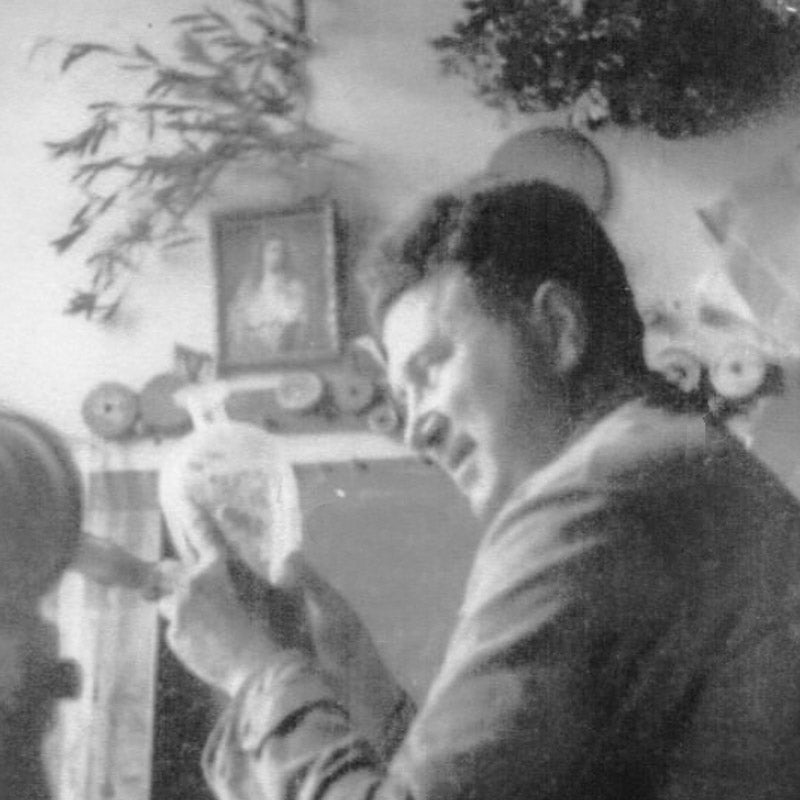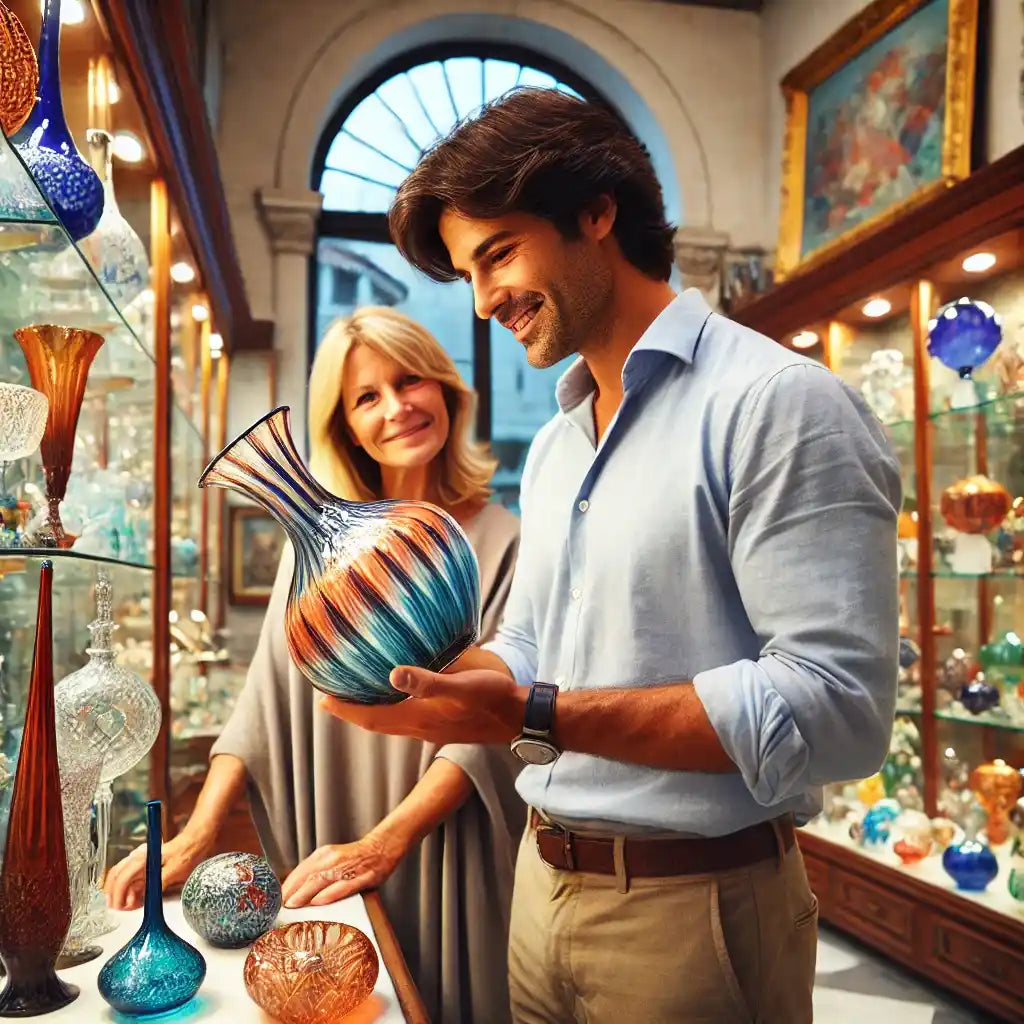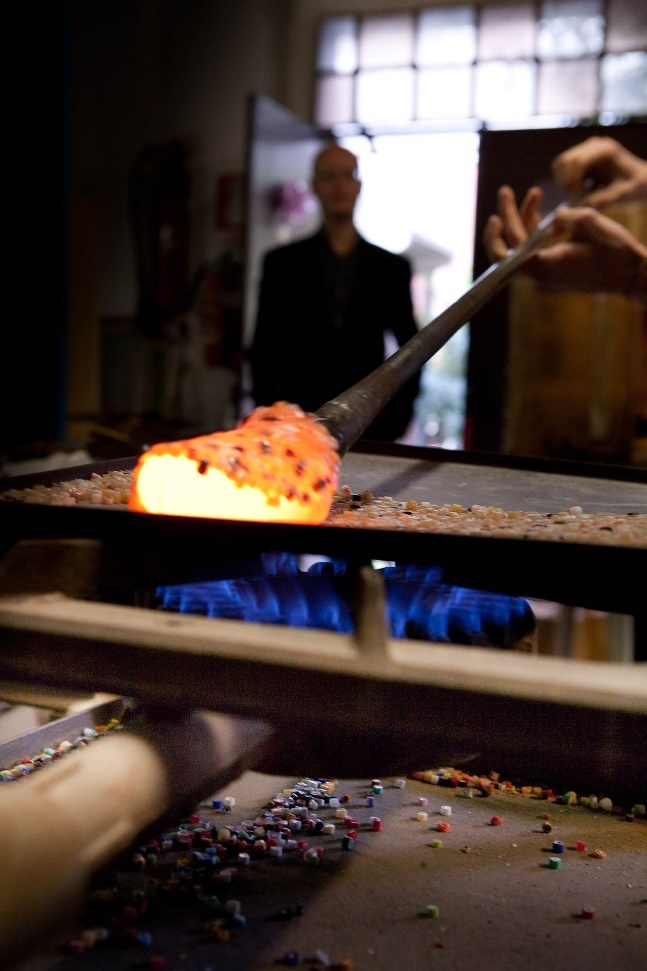Nicolò Barbini (born May 5, 1903, in Murano and died Dec. 28, 1985, in Murano) was an Italian artist known for engraving glass and mirrors.
After a long line of collaborations with brands that made the history of Murano glass currently his heirs own the company AVV Barbini Srl.
Born in Murano to Vincenzo Barbini and Anna Fuga, Nicolò hailed from a long line of glass artisans who had been operating on the island for over five centuries. His family was involved in various sectors of island production, including the manufacturing of chandeliers, pearls, and various glass objects, notably in the production of Venetian mirrors. His love for the art of glass was passed down to him by his father, Vincenzo, and paternal grandfather, Giovanni, both master glassblowers for the production of Conterie, who served as his initial mentors, imparting to him the rudiments of the craft and an artistic sensitivity for glass that would characterize his future work.
After completing his elementary education, Nicolò, like his siblings, attended the Scuola di Disegno per Artieri e Vetrai, founded by Abate Vincenzo Zanetti in 1862. Nicolò's passion for painting, which he would nurture throughout his life, merged with his love for glass and culminated in the art of engraving. In this particular and elegant decorative technique, he found a means to express his artistic creativity at the highest level.
In 1927, at the age of 24, driven by the ancient artistic flame of Murano and fortified by his family's long-standing tradition, Nicolò founded his first company specializing in engraved artistic glass, known today as Artigianato Artistico Veneziano. His brother Guglielmo, also a skilled engraver and co-founder of the renowned S.A.L.I.R., collaborated with him for several years. Within just two years, in 1929, Nicolò was awarded the gold medal at the "Mostra Campionaria" in Florence, distinguishing himself for the elegance and refinement of the mirrors he produced. Together with his brother Guglielmo, he furnished numerous hotels, palaces, residences, and exhibition halls with mirrors, tables, and mirrored dressers, including an entire casino in Ivory Coast.
In 1940, along with his brother-in-law "Memi" (Guglielmo), Nicolò established the firm "Barbini e Longega specchi veneziani artistici incisi," now known as "Domus vetri artistici". This company garnered widespread acclaim, thanks primarily to Nicolò's imagination and craftsmanship. His superlative engraving technique, the quality of his grinding, and his heightened sensitivity in combining colors and shapes became the hallmark of the future production of Artigianato Artistico Veneziano, inaugurated by Nicolò himself in 1960. Over time, he passed down his skills and the secrets of his craft to his sons, Vincenzo and Giovanni.
In 1943, Nicolò married Teresa Barovier, belonging to one of the most renowned glassmaking families in Murano, descending from the same Angelo Barovier. Their union resulted in six children: Maria, Vincenzo, Margherita, Lucia, Giovanni, and Annamaria.
Throughout his life, Nicolò cultivated deep and sincere friendships with master glassmakers, designers, and local artists, including Dino Martens, Aldo Radi, Anzolo Fuga, and, notably, Ermanno Toso. His generosity, affability, and profound faith were distinguishing characteristics of his personality, which defined him both as a man and as an artist.
Nicolò deserves recognition for reviving the art of Venetian mirror-making, which had nearly been forgotten at the beginning of the 20th century, by reinterpreting an invaluable heritage of techniques and secrets and reintroducing them to the world at large.
Nicolò passed away on February 17, 1985, at the age of 82, having witnessed the birth of eight of his future twenty-two grandchildren.
Related Posts:




コメントを書く
全てのコメントは、掲載前にモデレートされます
このサイトはhCaptchaによって保護されており、hCaptchaプライバシーポリシーおよび利用規約が適用されます。